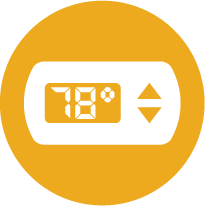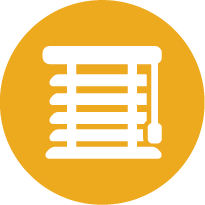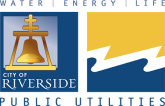WHAT IS A FLEX ALERT
A Flex Alert is issued by the California Independent System Operator (CAISO) typically in the summer when extremely hot weather pushes up electricity demand. A Flex Alert is a call for consumers to voluntarily conserve electricity when there is a predicted shortage of energy supply, especially if the grid operator needs to dip into reserves to cover demand. When consumers reduce electricity use at critical times, it can prevent more dire emergency measures, including possible power outages.
The CAISO monitors the wholesale energy market and plans for times when electricity may be in short supply statewide. When supply margins are tight, especially during the summer, when air conditioning drives up electricity demand, the CAISO has procedures and notifications in place for public and market participants to take action to protect grid reliability to California. Unplanned power plant outages, fires that lead to transmission line losses, and/or hot temperatures and persistent heatwaves are considered contributing triggers to a Flex Alert.
When the CAISO Issues a Flex Alert, There Is a Potential for Energy Emergency Alert (EEA) Notifications Which Include:
- EEA Watch – CAISO is expecting energy deficiencies in the following day.
- EEA 1 – Strong need for energy conservation due to expected energy deficiencies in upcoming hours.
- EEA 2 – CAISO has taken all mitigating actions and has intervened in the market, such as ordering Utility power plants online. Energy conservation is strongly encouraged, and emergency demand response programs are initiated.
- EEA 3 - CAISO is unable to meet minimum reserve requirements, therefore, controlled power curtailments are imminent or in progress. Maximum energy conservation is requested.
When the CAISO issues a EEA 3, RPU may be directed by the Statewide California ISO to reduce its electrical power load, enacting rotating outages of customers. These rotating outages due to the EEA 3 may last up to 1 hour. Please note, not all power outages are due to a mandated load shed EEA 3 and may occur for other reasons.
View RPU’s outage map for additional information regarding power outages and the power outage factor in the given area.
Learn more about how to be prepared and stay safe during an outage: https://www.riversideca.gov/utilities/outages
WAYS TO SAVE ENERGY & STAY COOL: RESIDENTIAL

Adjust your thermostat to 78° or higher, during peak hours or when you’re not home

Close windows and doors to prevent the loss of cooled air

Adjust temperature with ceiling fans
Escape the heat and visit a community cooling center
- Turn off unnecessary lighting and use task or desktop lamps with LEDs instead of overhead lights.
- Enable "power management" on all computers and turn off when not in use.
- Postpone using heat-producing appliances like the oven, dishwasher, clothes washer, and dryer until cooler times of the day to avoid heating up your home.
- Run your dishwasher and clothes washer only when full. Wait until after 9 p.m. to use these and other major appliances.When possible, wash clothes in cold water. About 90 percent of the energy used in a clothes washer goes to water heating.
- Turn your water heater down to 120° or the "normal" setting when home, and to the lowest setting when away. Water heating accounts for about 13 percent of home energy costs.
More Conservation Tips RPU Rebates Cool Centers
WAYS TO SAVE ENERGY & STAY COOL: BUSINESS
- Turn off any office equipment that is not currently in use. Alternately, look for sleep or power-saving modes in-between uses during the day.
- Keep windows and doors closed to prevent the loss of cooled or heated air.
- Enable power management settings on all computers, so that they go to sleep and turn off screens when not in use.
- Plug electronics such as coffee makers and microwaves into power strips and switch them off when the day is done.
- As you leave the office, get in the habit of checking to make sure computers, printers/copiers, and other office equipment is fully shut down. If possible, switch them off at the power strip to ensure they are no longer draining energy.
- Check window vents to make sure they are clear
